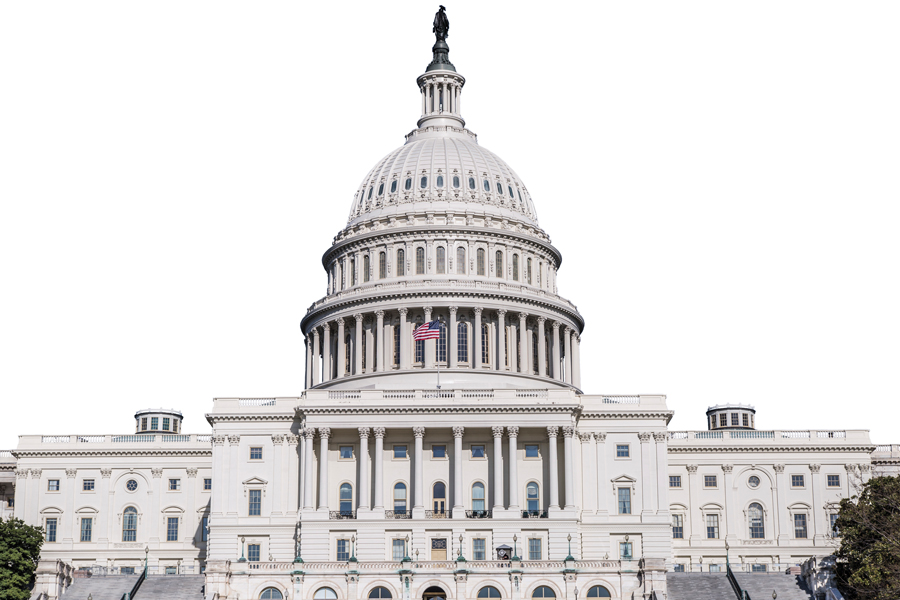

A House Republican bill that would abolish the income tax and replace it with a consumption tax is drawing skepticism from investment advisors and strong opposition from Democrats.
Rep. Earl “Buddy” Carter, R-Ga., earlier this month introduced the Fair Tax Act, which would impose a national sales tax on property and services transactions while eliminating payroll, gift and estate taxes as well as income taxes. The rate would be set at 23% beginning in 2025 and would be adjusted in following years.
States would administer and collect the tax and send it to the Treasury Department. The bill would end funding of the Internal Revenue Service in fiscal year 2027. Rebates would be given based on family size and income.
Under the bill, which has nearly two dozen Republican co-sponsors, the sales tax would be taken off the books if the 16th Amendment, which authorizes the income tax, is not repealed within seven years of the sales tax measure becoming law.
Although the bill is one of the first the new House Republican majority has floated, it stands almost no chance of getting through the Democratic-controlled Senate. It’s likely destined to be what is known as a messaging bill.
“The goal is to support Americans’ view that the tax code is too complicated,” said Palmer Schoening, chairman of the Family Business Coalition, a group of 150 small business associations that seek to lower taxes on family-owned businesses.
Politicians on both sides of the aisle have complained about an opaque tax system, but investment advisors doubt replacing it with a national sales tax is a good idea.
“It’s really, really stupid,” said Richard Pon, owner of an eponymous CPA and investment advisory firm. “It’s going to be really regressive. You’re going to have a lot of unhappy folks. It’s not going to go anywhere.”
A sales tax could catalyze saving and investment, but it also could hurt lower-income people who spend most of their money on goods and services.
Matt Chancey, an advisor at Coastal Investment Advisors, is concerned about unintended consequences.
“The spirit of it sounds good, but it could misfire as well,” Chancey said. “This is not the first time this [idea] has been in discussion. And most likely, like past attempts, it won't go anywhere this time either.”
The Republican-majority House could approve the bill, but then it would hit a wall in the Democratic Senate.
“There is nothing ‘fair’ about a tax that punishes average families for buying essential goods while giving the rich another chance to lower their tax burden,” Senate Majority Leader Chuck Schumer said on the floor Thursday. “And that's what's behind most of these Republican plans, a desire to help the very wealthy.”
While the sales tax bill is likely to stall, there may be a bit more hope for renewing some of the tax cuts in the 2017 tax reform law that are set to expire in 2025, Schoening said. They include provisions that lowered estate and individual income taxes.
“I get the sense [the GOP] is going to be focusing more on the extension of current tax cuts,” he said. But that effort also will be a heavy lift.
“It’s going to be tough in a divided government,” Schoening said. “They might make deals on the smaller tax cuts.”

A new proposal could end the ban on promoting client reviews in states like California and Connecticut, giving state-registered advisors a level playing field with their SEC-registered peers.

Some in the industry say that more UBS financial advisors this year will be heading for the exits.

The Wall Street giant has blasted data middlemen as digital freeloaders, but tech firms and consumer advocates are pushing back.

Research reveals a 4% year-on-year increase in expenses that one in five Americans, including one-quarter of Gen Xers, say they have not planned for.

Raymond James also lured another ex-Edward Jones advisor in South Carolina, while LPL welcomed a mother-and-son team from Edward Jones and Thrivent.
Orion's Tom Wilson on delivering coordinated, high-touch service in a world where returns alone no longer set you apart.
Barely a decade old, registered index-linked annuities have quickly surged in popularity, thanks to their unique blend of protection and growth potential—an appealing option for investors looking to chart a steadier course through today's choppy market waters, says Myles Lambert, Brighthouse Financial.
